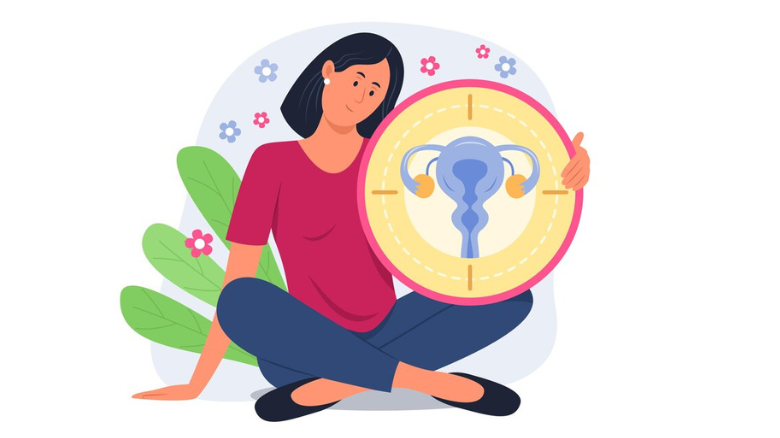
Women's reproductive health is a symphony where hormones play the lead. Each hormone has its own role, impacting everything from menstruation to mood. In a country like India, where traditional beliefs often mingle with modern medical understanding, it becomes crucial to unravel how these chemical messengers work. Understanding the intricate dance of hormones can empower you to take charge of your reproductive health, paving the way for informed choices and confident discussions with healthcare providers. Have you ever wondered how these invisible forces shape your monthly cycle, pregnancy, or even your menopausal journey?
Key Takeaways
- Hormones control every aspect of women's reproductive health, including the menstrual cycle, fertility, pregnancy, and menopause
- Understanding hormonal balance can help you manage symptoms like mood swings, fatigue, and irregular periods
- Hormonal imbalances are linked to conditions such as PCOS, endometriosis, and infertility
- Lifestyle changes and medical interventions can effectively manage and correct hormonal imbalances
- Education and awareness are essential for making informed health decisions
The Role of Hormones in Women’s Reproductive Health
Hormones are the invisible architects of your reproductive system, orchestrating the processes that govern fertility, menstruation, and menopause. They are produced by glands in your endocrine system, with each hormone having a unique function and impact. Understanding these roles is essential for recognising how they affect your health and well-being.
The Menstrual Cycle: A Monthly Ballet
The menstrual cycle is a complex interplay of hormones that prepare the body for potential pregnancy. Oestrogen and progesterone are the key players here. Oestrogen thickens the uterine lining, while progesterone maintains it. During ovulation, a surge in luteinising hormone (LH) triggers the release of an egg from the ovary. If fertilisation doesn't occur, the levels of oestrogen and progesterone drop, leading to menstruation.
For many women, this cycle is more than just biology; it influences mood, energy levels, and even skin health. The balance between oestrogen and progesterone is crucial. An imbalance can lead to issues like amenorrhea (absence of menstruation) or menorrhagia (heavy periods).
Fertility: The Role of Hormones in Conception
When it comes to conception, hormones are the gatekeepers. Follicle-stimulating hormone (FSH) and LH stimulate the ovaries to mature and release eggs. The presence of oestrogen and progesterone ensures that the uterine lining is ready for a fertilised egg. Hormonal imbalances can lead to conditions like Polycystic Ovary Syndrome (PCOS), making conception challenging. PCOS affects 5-10% of women in India, causing irregular periods and difficulty in conceiving.
For those facing fertility issues, understanding the hormonal underpinnings can be the first step towards effective treatment. Fertility treatments often focus on restoring balance through medications that regulate hormone levels.
Pregnancy: Hormones at Work
Pregnancy brings about a surge of hormones, each crucial for a healthy gestational period. Human chorionic gonadotropin (hCG) is the hormone detected in pregnancy tests, and it helps maintain the corpus luteum, which produces progesterone in early pregnancy. Progesterone and oestrogen support the developing fetus and prepare the body for childbirth.
These hormonal changes can also bring about challenges, such as morning sickness and mood swings. Understanding these effects can help you manage symptoms more effectively and seek appropriate medical advice when necessary.
Menopause: A New Hormonal Chapter
Menopause marks the end of a woman's reproductive years and comes with its own set of hormonal shifts. The decline in oestrogen levels can lead to symptoms like hot flushes, night sweats, and mood changes. In India, the average age of menopause is around 46 years, but symptoms can start years before in a phase known as perimenopause.
Hormone Replacement Therapy (HRT) is often recommended to alleviate menopausal symptoms. However, it's crucial to weigh the benefits and risks with your healthcare provider, as HRT may not be suitable for everyone.
Managing Hormonal Imbalances
Living with hormonal imbalances can be challenging, but several strategies can help restore balance. Lifestyle factors like diet, exercise, and stress management play a significant role in regulating hormones. Foods rich in omega-3 fatty acids, such as flaxseeds and walnuts, can support hormonal health. Regular exercise and stress-reduction techniques like yoga and meditation can also be beneficial.
Medical treatments, such as birth control pills or hormone therapy, might be necessary in some cases. It's important to work with your healthcare provider to determine the best approach for your individual needs.
The Importance of Awareness and Education
Empowering yourself with knowledge about hormones and their impact on reproductive health is crucial. It enables you to recognise symptoms of imbalance and seek timely medical intervention. In India, where access to reproductive health education can be limited, sharing information within communities can help demystify misconceptions and promote a healthier approach to women's health.
In conclusion, hormones are the unsung heroes of women's reproductive health, influencing every phase from menstruation to menopause. By understanding their roles and recognising the signs of imbalance, you can take proactive steps towards maintaining your health. Hormones regulate everything from menstruation to fertility. At Harsha Hospitals, we assess hormonal imbalances and provide tailored treatments for long-term reproductive health.


